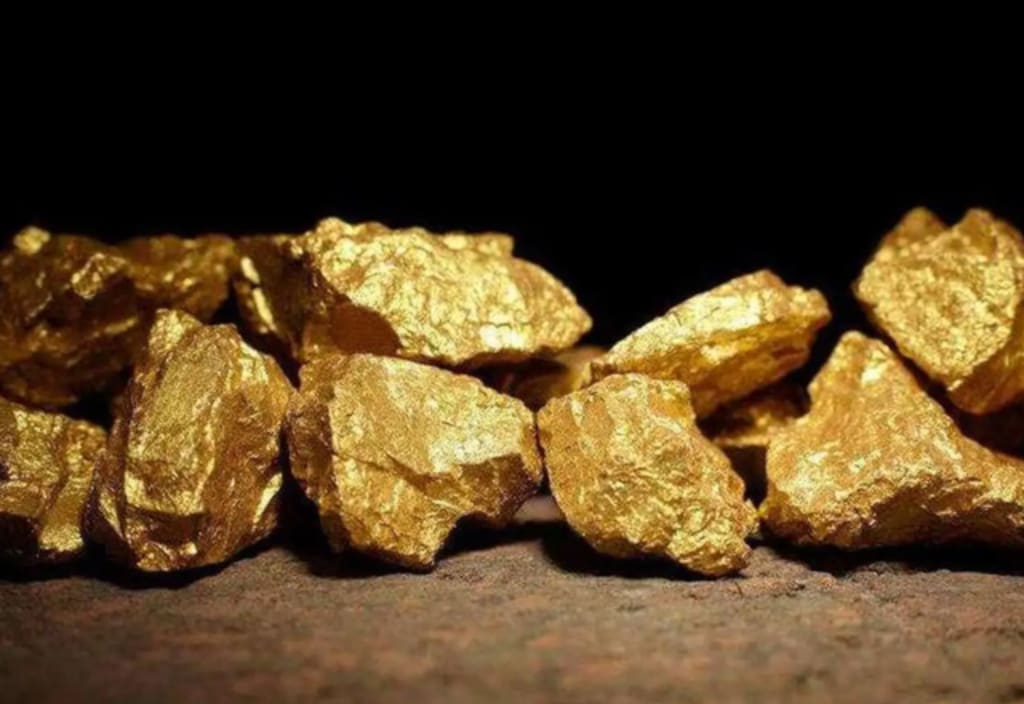Gold can be extracted from corn
Biological enrichment

Gold, in many ways, is an existence unmatched by anything else. In the beginning, the main role of gold was to decorate, and its great density and lustrous appearance made it a sought-after object; when gold appeared in the form of money, it became the most valuable existence.
Paper money will depreciate after inflation, but gold will never. That is why gold has never lost its popularity as a precious commodity from ancient times to the present.
The gold rush of the last century is the strongest proof of this.
Rare and precious gold
Although gold is very popular, its production is very low. Because gold is not born of the earth, but is the product of the explosion of stars in the universe, under the huge impact, the gold element was wrapped to the earth.
Because it is an exotic product, the earth does not have the conditions to breed gold elements, resulting in very small reserves of gold on earth. Generally speaking, gold only exists in the ore, such as gold ore, alluvial ore, and hard rock ore containing the element of gold.
With the development of technology, people gradually learn to use chemical principles to prepare gold. However, the element of gold itself is limited, so even though gold is being mined more and more today, it still cannot escape the label of precious and rare.
However, in the last century, the Soviet Union discovered that gold is not only found in ores but also corn.
The distribution of gold in plants and animals
Alchemy has been in the hands of a few people in ancient times, so some alchemists thought about other ways of making gold. In ancient times, European alchemy envisioned whether the golden corn was so close to the color of gold that gold could be extracted from it.
Although there is this idea, they did not succeed.
However, this idea is not pie in the sky, because, in the 1930s, the Soviet Union found gold in the corn. Little did I know that in the Soviet Union, besides Khrushchev having such a great relationship with corn, gold was also closely related to corn.
It was tested that one ton of corn ash would produce 10g of gold among them.
Since corn can produce gold, is it possible that other living creatures can do the same? So, in the people's test, again and again, they found that in addition to corn, pine cones also have traces of gold; not only that, we are familiar with the seven-star ladybug also having gold in its body. Finally, scientists put their eyes on humans but found that humans also contain traces of gold.
Why is gold, which was once considered rare, found everywhere again?
Biological enrichment
The reason why gold has become so widespread is due to the enrichment effect of organisms. That is, organisms in their living environment will continue to socially ingest other elements in lower concentrations, make the element accumulate in the body, and eventually reach a high concentration.
In other words, the gold element in the body of corn and gold tortoise is not naturally occurring but is drawn from the living environment, in the final analysis, the real way of birth of the gold element is still ore.
But human beings do not absorb the elements in the ore, why does their own body also contain a small number of gold elements? This is the implicit message of bioconcentration: that it does not exist in a single link.
When humans eat plants containing gold elements for a long time, the gold elements will be transferred to people, thus producing a secondary enrichment effect. That is why it is easy to understand the presence of gold in the body of other species, such as the golden tortoise.
For this reason, we often hear that if we plant corn near a gold mine, the gold content of the corn will also increase. In terms of bio-enrichment, this statement is true.
However, trying to refine gold through corn is putting the cart before the horse. As a cash crop, corn is very versatile. To refine a small amount of corn to make a few months ripen all the corn is too much of a waste. Likewise, extracting gold from pine cones and golden turtles is the destruction of another organism.
Bioconcentration cannot make a racket, but it has a great impact on humans and their lives.
Impacts of Bioconcentration
The concept of a "double-edged sword" is not new to us, and the impact of bioconcentration is a "double-edged sword". In the beginning, it was more of a positive effect.
Although humans were born late, they became at the top of the food chain on earth. As a result, humans enjoyed many of the benefits of bioconcentration.
Before the birth of modern science, humans took in nutrients from what we ate, and these foods brought many of nature's chemical elements into our bodies to enable us to grow properly.
For example, calcium is found in rocks. People had no concept of chemical elements before, but they knew that drinking milk and practical sesame seeds could make them grow faster because the enrichment of calcium in these things was more obvious.
Similarly, iodine-deficient kelp and zinc-deficient spinach are also higher in iodine and zinc in their bodies.
Because of enrichment, humans have access to more growth-enhancing elements. However, with the development of technology, access to these elements is no longer limited to plants and animals, and many nutritional products have taken their place.
At the same time, their negative effects have become apparent.
Human development and lack of attention to environmental protection have led to the flow of many pollutants into the natural world. And because of bio-enrichment, plants and animals absorb those pollutants and accumulate more and more in their bodies. When humans consume these contaminated things again, tragedy strikes.
A few years ago, rice containing mercury was the most powerful proof of this.
Bioconcentration has shown us the wonders of nature. Because of this principle, the earth's organisms achieve the flow of elements; but it is also this principle that allows pollutants to circulate through nature and affect the human body.
Ultimately, the negative effects of bio-enrichment are the result of human activities, which eventually act on human beings, which is another sense of sinful force back.
Nature is our common home, and we should respect it and live in harmony with it, both for the sake of humans and for the sake of the diversity of the planet.
About the Creator
Karen Gillanah
The aggravation that can be told is not aggravation; the lover that can be snatched away is not a lover.






Comments
There are no comments for this story
Be the first to respond and start the conversation.